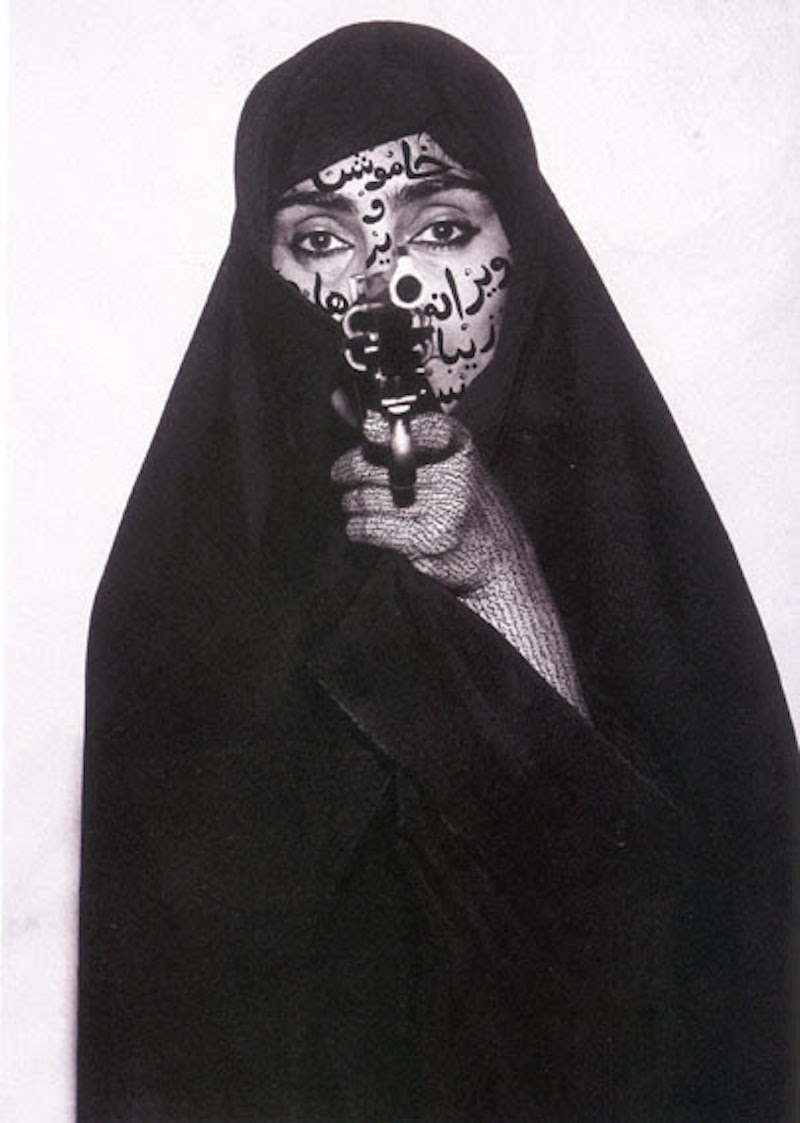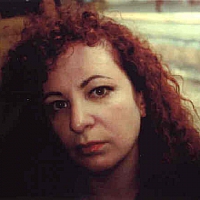
SHIRIN NESHAT: Faceless (from the series Women of Allah), 1994 Fondazione Sandretto Re Rebaudengo, Torino © Shirin Neshat
"Through women’s eyes" is a powerful exhibition that speaks about the care lavished on relationships, about our relationship with the other, and about ways of gazing on and observing the world—and where the premise is an innate sense of responsibility. It is also an ambitious project, underlining as it does how over the last few decades photography has opted to become a sort of world conscience, often also depicting that which has been concealed.
A woman is by definition a loving being, capable of "totally giving spirit and body" (Nietzsche, The Gay Science) with unconditional devotion. This is why the curator Francesca Alfano Miglietti has chosen female artists or authors who use photography as a means of expressing themselves and all women the world over. They are all finely attuned to perceiving the same humanity, uniqueness, and in-difference in the infinite variety of subjects they portray; their aim is to eschew the fear of diversity.
"Through women’s eyes" is also a polyphonic tale of the manifold forms of the body—physical, mythical, spiritual, and glorious—with a dual value: intimate and universal, it sets out on a search for existence, beyond the anonymous system of the mask.
Each work provokes profound and intimate dialogue between the subjects of the photographs and the viewer, relating an indefinite glimpse of our common human condition, an "invitation to become aware" of the existence of different worlds that are often completely extraneous from one another.
Francesca Alfano Miglietti has chosen twenty-five authors, twenty-five stories, twenty-five unique views of the world, of the other and relationships, selecting about 250 works by Diane Arbus, Martina Bacigalupo, Yael Bartana, Letizia Battaglia, Margaret Bourke-White, Sophie Calle, Lisetta Carmi, Tacita Dean, Lucinda Devlin, Donna Ferrato, Giorgia Fiorio, Nan Goldin, Roni Horn, Zanele Muholi, Shirin Neshat, Yoko Ono, Catherine Opie, Bettina Rheims, Tracey Rose, Martha Rosler, Chiara Samugheo, Alessandra Sanguinetti, Sam Taylor-Johnson, Donata Wenders, and Yelena Yemchuk.
.jpg)
Bettina Rheims, Valentin P. III (From the series Gender Studies) 2011 © Bettina Rheims
Through their work and images, these photographers deal with the profound themes of human existence, life, love, and the body, highlighting differences, conflicts, suffering, relationships, fears, and transformations.
The exhibition is therefore a complex dramatic composition presenting a wealth of references to other sources. At times it seems as if the photographers are bound to recover the tradition of photojournalism; at others a heart rending, melancholic poeticism; and, at yet others, the language of denunciation and compassion. The characteristic that all the works have in common is the absolute centrality of a dialogue with the real—a centrality that establishes strict links with the forms of the world in recovering life’s materials.
And herein lies the paradox—anyone who approaches these works realises that the world they relate and display has nothing of the spontaneous about it. Whether the photographs depict men or women, a room or a bed, whether you given a bench or an electric chair, the compositional thrust of the works is never geared towards photojournalism or the quick snapshot. What you clearly perceive is the author’s ability to invent and construct stories based on a poetic thought, an idea of what might happen and often does indeed happen.
The illustrated exhibition catalogue, published by Marsilio Editori in English and Italian versions, contains essays by Antonio Marras, director of the exhibition layout, and Francesca Alfano Miglietti, the exhibition's curator.



